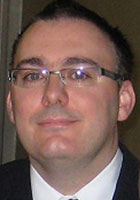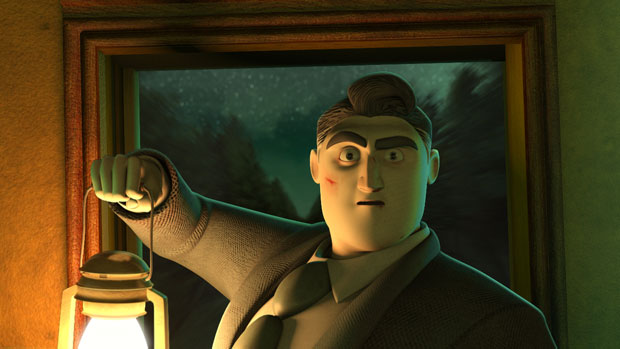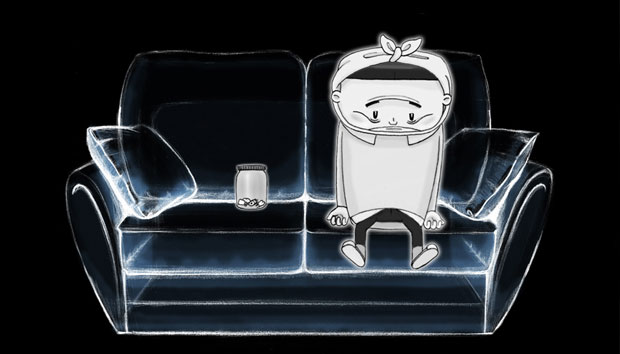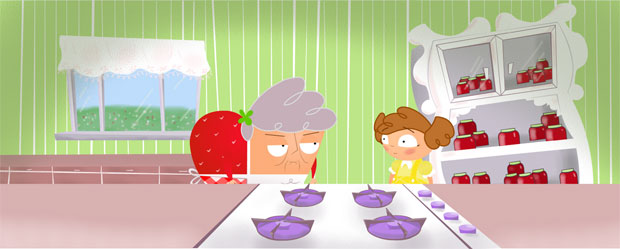
Every Animation School has its own core focus and emphasis, some schools focus on software, others on storytelling, others on art direction, some others on animation performance and short film making. While every course generically covers all the above mentioned areas, over a period of time, each school develops its own core focus. What is the Ballyfermot course inclined towards?
There is a two pronged focus of the Irish School of Animation at Ballyfermot College of Further Education; one related to the origins and history of animation at the college, the other related to the Irish storytelling tradition. The Irish School of Animation has a long and successful history of delivering animation programmes going all the way back to the early 1990s when Don Bluth (former Disney animator and founder of the Dublin-based Sullivan Bluth studio) was involved in establishing the first ever animation department in Ireland at the college. This direct link with industry is still one of the core focus points of the Irish School of Animation. To this day we endeavor to maintain strong links with the Irish Animation industry, which is thriving at the moment. In addition, Ireland has a long established link with good storytelling in terms of our writers, poets, dramatists and film makers. The other core focus of the college is to bring strong visual representation to this tradition of storytelling in Ireland and to ensure that future graduates of the Irish School of Animation become the digital storytellers of the future.
 What is the most exciting and impactful development at Ballyfermot in the last 3-4 months that you’d like to share the news about?
What is the most exciting and impactful development at Ballyfermot in the last 3-4 months that you’d like to share the news about?
Last summer we completed our first Animation Hub project (a collaborative project involving Trinity College, the animation studio Giant Creative and the Irish School of Animation). That project, a short called ‘The Last Train’ has gone on to win a number of awards and was selected in competition at Annecy 2012. Our most exciting news currently is that the second Animation Hub project is about to launch. A press release will go out in the next few weeks, so watch this space. It will be a bigger and more ambitious project than ‘The Last Train’. You can see ‘The Last Train’ here: http://vimeo.com/31215588

Can we understand from your esteemed faculty members, their perspective on teaching animation?
I can only speak for myself but I think at the college we aim to give students a thorough understanding of the Principles of Animation while focusing at the same time on strong drawing, composition and design skills. We support this by encouraging students to find their own voice and their own style and by helping them to develop in a professional way so that they can hit the ground running when they leave the college.

How many students has Ballyfermot (Irish school of animation) groomed so far in animation and digital media?
At the moment, we have around 150 animation students at the school across three programmes. We usually have around 35 graduates every year. The course has been running for almost 25 years so that’s a lot of graduates!
Could you name a few of your famous students who have gone ahead and carved a name for themselves in animation?
Our distinguished Alumni includes people like: Richard Baneham (Oscar winner for VFX on Avatar), Seamus Malone (Supervising Animator for Aardman and Emmy Award Winner), Jason Ryan (supervising Animator for Dreamworks), Brian Woods (Layout Artist for Disney TV and Emmy Award Winner), Patrick Collins (Head of story at Cinderbiter Productions), Darragh O’Connell (Director with Brown Bag Films and Academy Award Nominee), Tomm Moore (Creative Director with Cartoon Saloon and Academy Award Nominee), Steve Deane (Pre Vis Artist with Halon Entertainment), Colbert Fennelly (Lead Artist at Rhythm & Hues), Simon Rodgers (Lead Concept Artist with Dreamworks), David Lowry (Lead Animator at Double Negative and Annie Award Nominee), David Satchwell (CG Supervisor at Sony Pictures Entertainment) and Nicolas Debray (Lead Animator on The Illusionist).

What are the key trends you observe in terms of changing times… students coming to study animation a few years ago and students of today?
Students today are more tech savvy than students in the past naturally. They also understand the importance of presenting their work in a professional way. With advances in technology, the opportunities for today’s students are endless; however the competition to get ahead in the industry has never been greater.

How does your school manage its quality control process? What’s the attitude towards entrance examinations and counselling? Do you guide students to pursue other fields if u find they do not have the aptitude for animation?
We have a competitive and rigorous entry process. Every applicant is interviewed and their portfolio is reviewed. Once we take someone on the course we give them as much advice as possible in terms of career direction and opportunities.
What are the latest short films developed at your school?
Our latest batch of short films are on the festival circuit so none of them are online yet. However you can see samples of our previous student animation shorts on our Vimeo page here: http://vimeo.com/irishschoolofanimation
How much importance do you give to the making of short films?
I think the process of making a short film is an important process for students to go through. They also may not get the opportunity again to make a short film so it’s something students have a desire to do while they’re in college. I prefer short films where a team works together and each team member takes on a designated role. The industry is now more and more looking for specialists rather than generalists and the work students do (represented by their show reel and portfolio) is often more likely to get them a job than a short film. However if a short has a good run on the festival circuit it can get students a lot of useful attention and networking at festivals is a great way to get ahead.
Are you open to International Collaboration, on student level, faculty level as well as in terms of organizational level?*
Yes we are open to International Collaboration. We already have good working relationships with the University of Dundee and Trinity College. The Irish school of Animation has always attracted International students. We currently have a large number of students from several European countries as well as from the US. We haven’t had many students from India to date but as I said we’re open to international collaboration at all levels.
Are courses at your institution subsidized by the Government?
Yes. The Irish School of Animation is a state funded college.
You can find out more about us here: http://www.isa-bcfe.ie/ and here:http://www.bcfe.ie/